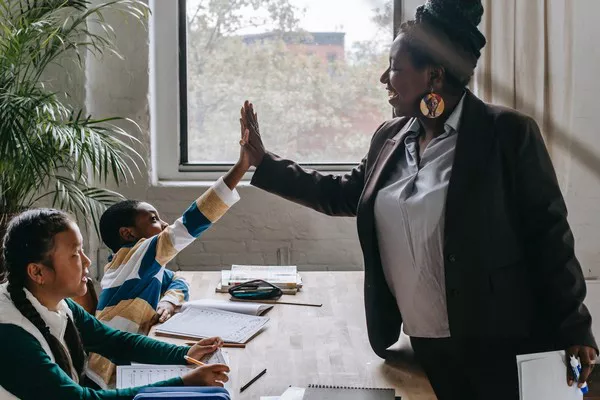Friendships, particularly long-standing ones, play a crucial role in our lives. These connections often serve as sources of comfort, shared memories, and mutual growth. Losing a long-time friend—whether due to a falling out, life changes, or natural drift—can feel as painful as any other significant loss. This type of separation often leaves individuals grappling with grief, loneliness, and a sense of uncertainty about how to move forward.
As a psychologist, I’ve observed how deeply impactful such losses can be. Understanding the emotional toll and learning effective coping strategies can help navigate this challenging experience and foster personal growth.
Why Losing a Long-Time Friend Hurts So Much
The loss of a long-time friend often stings because of the emotional investment and shared history involved. Here are some reasons why this loss feels particularly significant:
Identity and Shared Memories
Long-term friendships often intertwine with one’s sense of identity. These relationships involve years of shared experiences, milestones, and personal growth. When a friendship ends, it can feel like losing a part of oneself.
Loss of Emotional Support
Close friends serve as a support system during life’s highs and lows. Losing that anchor can create a void, leaving you feeling unmoored.
Unresolved Questions or Guilt
The end of a friendship may leave unanswered questions or lingering guilt about what went wrong. This uncertainty can fuel a cycle of self-doubt or regret.
Change in Routine and Social Dynamics
A long-time friend often becomes an integral part of daily life—someone you call for advice, share jokes with, or rely on for companionship. Their absence disrupts your social routine, amplifying feelings of loneliness.
Coping Strategies for the Loss of a Long-Time Friend
While losing a close friend is emotionally taxing, there are steps you can take to process the loss and find closure:
1. Acknowledge Your Feelings
Suppressing emotions doesn’t make them disappear—it often intensifies them. Allow yourself to grieve the loss of the friendship. Feelings of sadness, anger, or confusion are normal and valid. Journaling, talking to a trusted confidant, or seeking therapy can help you process these emotions.
2. Reflect on the Friendship
Take time to think about what the friendship meant to you and why it ended. Was it due to a misunderstanding, differing life paths, or unresolved conflicts? Reflection helps provide clarity and can prevent feelings of blame or resentment from festering.
3. Accept the End as Part of Life’s Changes
Friendships evolve, and sometimes they come to a natural end. Accepting that not all relationships are meant to last forever can help you let go of unrealistic expectations. It’s okay to cherish the good moments while recognizing that the friendship no longer aligns with your current life.
4. Avoid the Blame Game
In the aftermath of losing a friend, it’s tempting to assign blame—either on yourself or the other person. However, this approach rarely leads to closure. Instead, focus on understanding the situation objectively and compassionately.
5. Seek Support from Others
Losing a friend can feel isolating, but remember that you’re not alone. Lean on other relationships in your life—family members, colleagues, or mutual friends—for support and connection. Expanding your social circle can help fill the emotional gap.
When Reconnecting Is Possible
Sometimes, the loss of a friendship isn’t permanent. If you feel the friendship could be mended, consider these steps:
Reach Out with Understanding
Send a message or letter expressing your feelings and a desire to reconcile. Be honest and acknowledge any mistakes or misunderstandings on your part.
Set Boundaries and Expectations
If reconciliation is successful, it’s important to discuss what went wrong and set healthy boundaries to avoid repeating past issues.
Be Prepared for Any Outcome
While reaching out can sometimes lead to reconciliation, it’s also possible that the other person isn’t ready or willing to reconnect. Respect their decision and focus on moving forward.
Finding Closure
Closure doesn’t always come from external reconciliation—it often comes from within. To find peace, practice self-compassion and focus on personal growth:
1. Embrace New Opportunities
While it’s difficult to replace the emotional depth of a long-time friend, building new relationships can bring fresh perspectives and joy into your life.
2. Celebrate the Good Times
Instead of focusing solely on the loss, try to remember the positive aspects of the friendship. Celebrate the memories and lessons the relationship provided.
3. Learn from the Experience
Every loss teaches us something about ourselves and how we relate to others. Use this opportunity to grow emotionally, strengthen existing relationships, and cultivate a more resilient sense of self.
Professional Support for Friendship Loss
If the loss of a friendship is significantly affecting your mental health, seeking professional support can be invaluable. Therapists can provide strategies to manage grief, rebuild confidence, and foster healthier relationships moving forward.
Conclusion
Losing a long-time friend is undoubtedly a challenging experience, but it’s also an opportunity for reflection and growth. By acknowledging your emotions, seeking support, and focusing on self-compassion, you can navigate this transition with resilience and hope. While the pain of the loss may linger, it’s a reminder of the deep connections we’re capable of forming—and an invitation to cherish the relationships still in your life. Remember, growth often comes from life’s most difficult moments.
Related topics:





























